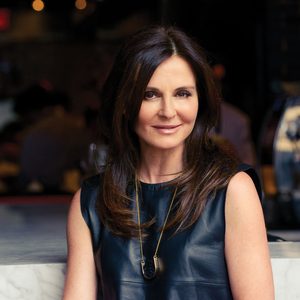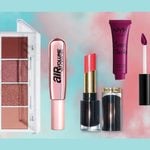This Canadian Beauty Brand is Helping to Empower Indigenous Youth
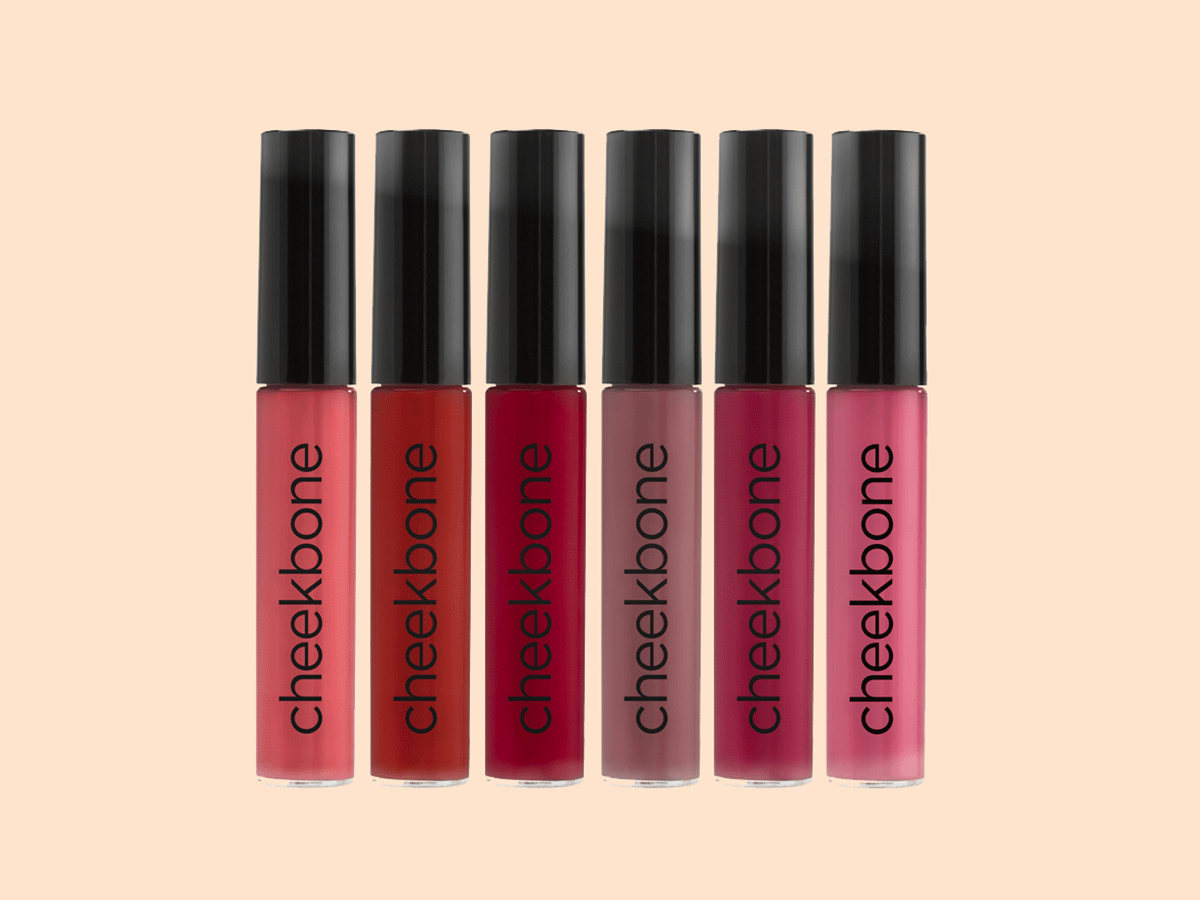
With one eye on sustainability and the other on social consciousness, Jennifer Harper is transforming a beautiful dream into a growing beauty business.
Jennifer Harper is the kind of woman who can turn dreams into reality. “In 2015, I had this dream about these little Indigenous girls with rosy cheeks and they were covered in lip gloss,” she says. “I woke up from that and literally thought, OK, I’m going to figure out how to make a lip gloss and start a foundation after my grandmother, who was a residential-school survivor.”
That 2 a.m. aha moment led Harper, who shares Ojibwe roots, to become the founder and CEO of Cheekbone Beauty. Based in St. Catharines, ON, the digitally-native, direct-to-consumer brand launched in 2016 with a curated collection that included a contour palette, brow gel and, of course, lip gloss. “I’ve had an enormous love of cosmetic products my whole life, with early childhood memories of getting into my mother’s makeup,” says Harper. “I loved hanging out in the drugstore beauty section, and the beauty counters at all the big department stores were always my favourite spot to check out.”
In place of formal experience in cosmetics, she built on transferable skills and knowledge acquired from 15 years of working in the food industry. “I learned that beauty and food are very similar in that there are manufacturers who make the same products for different brands and that everything we see on our shelves is essentially just branded differently and has a different story,” she says. “That’s when I realized that I can make a beauty brand.”
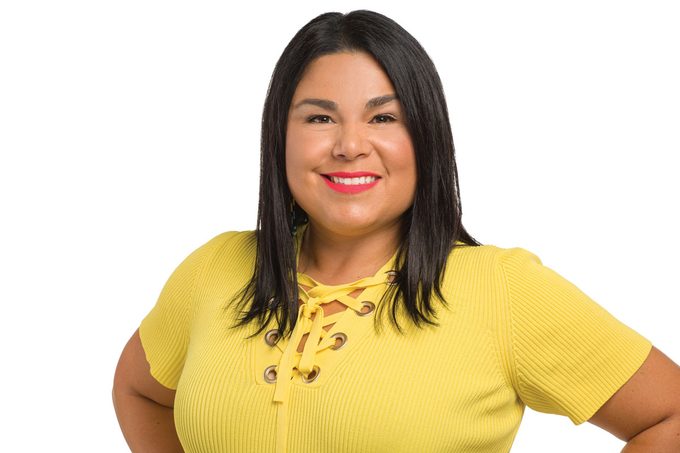
Becoming a boss lady.
But merely selling lip gloss was never Harper’s bottom line. “As an Indigenous woman, I want to empower Indigenous youth,” she says. “It’s at the core of everything we’re trying to do – something that’s going to sustain Indigenous people, communities and families for generations to come.”
Makeup is the vehicle for that goal, taking something that has the ability to make a lot of money and turning it into doing something good. Insights into the financial potential of cosmetics secured Harper’s decision to step into the entrepreneurial ring. “If this is a space where I want to have this big give-back portion and create a platform where Indigenous youth can see themselves in this brand, beauty is a great spot to do that because of the margin,” she says.
Being mission driven, she sees the white space in an otherwise saturated market. “If you go into a beauty store or beauty section, everything is highly segmented,” says Harper. “We have natural beauty, clean beauty, colour cosmetics – everything is in its own pillar. But the pillar that’s missing is sustainable, socially conscious brands. It’s not just about the actual products but what companies are doing to support things that are bigger than themselves.”
Cheekbone Beauty achieves this in various ways.
For starters, there is a standing commitment to donate 10 percent of profits to the First Nations Child & Family Caring Society’s Shannen’s Dream program, which addresses the educational funding crisis. The Pink Feather Foundation is another initiative. Designed to pass on love, gratitude and kindness, every order is shipped with a symbolic vibrant plume or vegan alternative.
Harper is connected with her followers and fans, and her success can be measured by reminders that she is on the right track. The top-selling Warrior Women Liquid Lipstick Collection, a growing group of shades named after inspiring Indigenous women like activist Sarain Fox and iconic singer-songwriter Buffy Sainte-Marie, has resonated loudly. Messages from young women who have worn her lipsticks and felt empowered to do something never get old, says Harper. “They’re just so glad that they can see their faces,” she says. “That was always the intention, but to hear it coming from them, every message is enormously moving and sincerely touches my heart.”
(Psst: Check out our lazy girl’s guide for removing makeup.)
Invest in yourself.
While running a growing business and raising two high schoolers with her husband, Harper remains equally committed to putting in work on herself. Having overcome alcoholism, her tool kit includes daily prayer, meditation and regular physical activity. “The healing and grounding I do every day is based on my relationship with the Creator, and my sobriety is contingent on that routine,” she says.
Attending a variety of weight training classes throughout the week is another part of her healthy living plan. “Those classes are so important,” she says. “I tell everyone that they’re better than any drug I’ve tried. Fitness is so powerful. Once I’m done, my brain is clear and I just feel incredible.” There’s also a communal cheering squad aspect that Harper misses when her travels keep her away from her local studio. “Hotel gyms aren’t the same,” she says. “You’re not with the people in your class who are pushing you to go for that third set when you’re thinking, ‘I’m not going to make it.’ There’s a whole group of women saying ‘Yes, you are!’”
You may have spotted Harper last fall during her appearance on CBC’s Dragons’ Den.
Did she strike it rich with a deal? No, she chose to turn down an offer of $100,000 for 50 percent ownership in her company. Having first auditioned for the show in 2017, she calls walking away from the long-awaited opportunity an empowering experience.
“It was the scariest thing I’ve ever done and completely out of my comfort zone,” she says. “But they were nothing but gracious, and it helped me grow as a business owner, as well as gain more confidence.” Her strategy? Soak it all in. “I have an excellent mom who always taught us humility, which I think is a quality that’s lacking,” she says. “I knew I was standing in front of six Canadian business icons and, if they wanted to tell me something constructive that I should change or do, I was going to stand there and listen. That is not an opportunity that everyone gets.”
While an ideal scenario may have involved an offer from Arlene Dickinson with maximum funding and minimal equity, Harper is firmly focused on the upside. “That dream deal in my mind is like waiting for a knight in shining armour to rescue me and take care of everything,” she says. “It doesn’t happen in real life, and it doesn’t happen in business. It’s a fairy tale. Everything is an enormous amount of work to get you to the next level.” Besides, the exposure of being on a national television show as both a business owner and cultural leader was priceless. “I want Indigenous youth to just try,” she says. “That’s all I want them to do.”
Spoiler alert: This is going to be a big year for Harper.
“The last two-and-a-half years were really about testing the market, bringing the MVP [minimum viable product] out to see what people think of it and seeing if anyone really wants this brand to exist,” she says. “Gratefully, people have been attracted to it and love what we’re trying to do, so now we’re on this next journey, Cheekbone Beauty 2.0.” That includes a five-year plan to move toward zero-waste packaging, with the first iterations becoming available soon. “I’m doing the best I can to partner with really brilliant minds in terms of packaging and formulations,” she says. “There are amazingly innovative companies creating ingredients that we can now use, taking byproducts and waste from the agricultural industry and turning them into a product that’s usable in our new lipstick line.”
Faithful to the linked actions between her products and the people who use them, Harper is bolstering the development of biodegradable packaging with consumer education. “There’s a lot of explanation that’s going to be behind how to take apart the lipstick so that you can remove the plastic insert, recycle that and then put the rest of it into your compost instead of the garbage,” she says. “There’s a lot we have to do to get this done and do it right.”
The pursuit of evolving Cheekbone Beauty’s eco-conscious commitment is the latest example of how Harper has risen to the challenge of creating her company powered with fierce determination. “It’s been a complete learning experience for me, but you figure things out and that’s a big part of the message I’m trying to leave for Indigenous youth,” she says. “I didn’t know everything going into this, but I’m figuring it out as I go along. We’re going to try to do better – and doing better is the goal as opposed to not doing anything at all.”
Best advice you’ve ever gotten?
“In terms of business, next steps and strategy, the best advice I’ve gotten to date, hands down, was to use an advisory board. I got the advice from a business mentor very early on, when I was just beginning to write a plan. The group I used was made up of retired accountants, lawyers and entrepreneurs that sit on other boards to this day – all sorts of not-for-profit and for-profit companies – and they were unbiased. They didn’t know me, my business or my background, so it was real advice. It was incredible.”
What do you wish you knew then that you know now?
“Asking for more help. As women, I think we suffer from not asking for as much help as we might need. But things happened on the right timeline. I grew as a founder, business owner and entrepreneur as I was building. Even if I knew some of the things I know now, I don’t think I’d have been even capable of approaching them in the same way.”
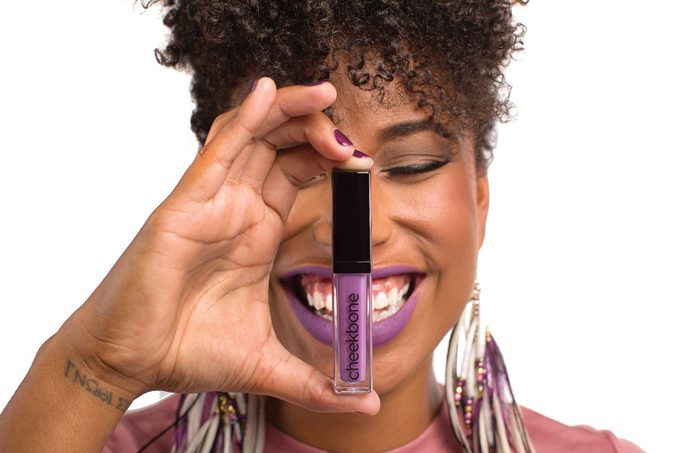
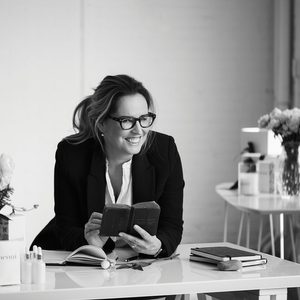
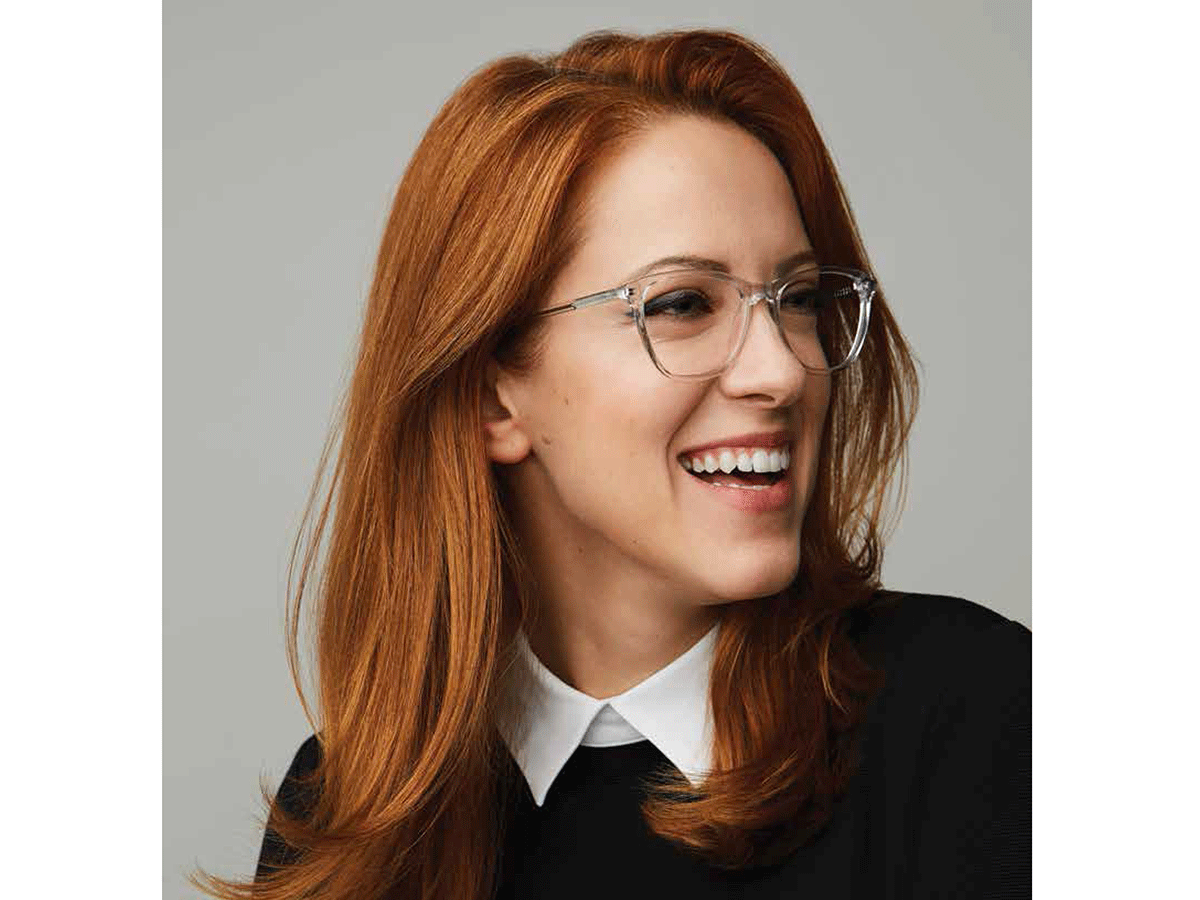 The Brains Behind BonLook" width="295" height="295" />
The Brains Behind BonLook" width="295" height="295" />